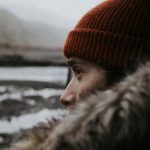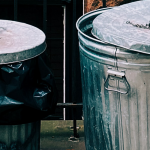She hated dusk now. She could cope with the rest of the day. She was doing great, in fact, all things considered. Even at night, she could sleep now. Most nights, at least. But dusk, it made the woods thicker, the rubble greyer. It made the houses, with their collapsed roofs, their cracked walls, look even colder. It made the crumbled villages emptier. As if they were not empty already.
“It was brave of you to stay,” the journalist said.
“Someone had to.”
He took a picture of her in front of the restaurant – the sign, the facade, everything intact. He looked almost disappointed. It was a miracle for her to have survived the earthquake. That’s why she stayed. She owed it, though to whom or to what she was no longer sure.
But dusk, she did not like. That’s why she hid in the kitchen. Cutting, chopping, mincing. She liked the exercise, the focus it required. But most of all, she liked the noise coming from the dining room. Her customers were mostly firemen now, volunteers, workers who came to put up the tents. remove the rubble. Some were old villagers. She heard them all, recalling life before, or life back home.
Soon, she hoped, she would hear laughter too.
“Surviving is something you must do, every day,” she told the journalist. “It’s scary, like having to learn to walk, all over again. And it’s simple. It’s hopeful. Like the sound of a sauce bubbling, like making bread.”.
…
Biography
Slawka G. Scarso. Half Italian, half British-Polish, Slawka has published several books on wine. Her short stories have appeared in Italy, the UK and New Zealand and as an award-winning collection titled Mani buone per impastare (Blonk, 2014). She’s based in Castel Gandolfo, a village perched on a sleeping volcano in Italy. @nanopausa.
Image: Patrick Fore





